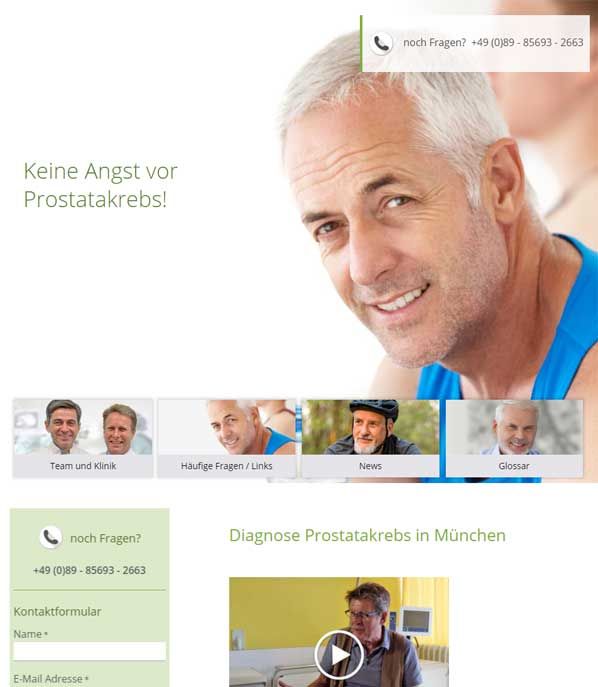Chronic inflammation of the prostate (chronic prostatitis)
and chronic pelvic pain syndrome (CPPS)
The symptoms of chronic prostatitis are less dramatic than those of acute bacterial prostatitis, but much more common. Around 10% of men will develop prostatitis at least once in their lives, and in more than 90% of cases it will not be possible to detect any causative microorganisms.
Different types of chronic prostatitis often cause diffuse pain around the anus, testicles, perineum or bladder which is not obviously characteristic of prostate problems. This is sometimes accompanied by a burning sensation in the urethra, problems passing water and sexual problems.
The bacterial form of chronic prostatitis is diagnosed using a test known as the four-glass test. This involves massaging the prostate to obtain expressed prostate secretion (prostatic fluid). If bacteria are present in the prostate, a significant bacterial load or an increase in inflammatory cells will be detected in this fluid or in exprimate urine. In addition to organisms commonly found in urinary tract infections, such as E. coli, Pseudomonas and enterobacteria, bacteria involved in prostatitis include difficult to culture organisms such as Chlamydia, Mycoplasma and Ureaplasma.
Treatment of chronic bacterial prostatitis involves a long course of antibiotics for a period of at least 4–6 weeks. Additionally, drugs to improve the flow of urine and anti-inflammatory drugs may also be given to relieve symptoms. Where urine flow is found to be reduced as a result of benign enlargement of the prostate, surgery to resolve this may be advised.
The four-glass test finds evidence of a bacterial infection in only 5% of patients with chronic prostatitis, however, and symptoms are far more likely to be due to chronic abacterial prostatitis (also known as chronic pelvic pain syndrome or CPPS). Factors postulated as possible causes of CPPS include:
- infection by a non-culturable infectious organism
- abacterial inflammation as a result of urine flowing back into the prostatic ducts
- autoimmune disorders
- disruption to the protective lining of the bladder (“male form of interstitial cystitis”)
- tension in the pelvic floor
- psychosomatic causes
Other options are:
- pentosan polysulphate
- phytotherapy (herbal remedies)
- acupuncture
- physiotherapy
- psychotherapy
CPPS tends to have a favourable prognosis even without treatment. After one year with no treatment, 50% of patients experience some improvement, 37% no change and 13% a worsening of their condition.







